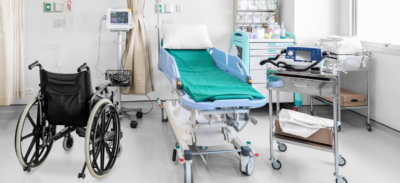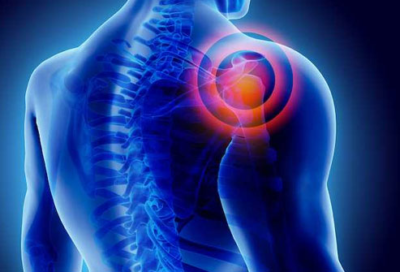How DNPs use epidemiological analysis in decision-making

Epidemiological analysis is the study of the occurrence of disease and includes learning how and why disease affects different groups of the population. It’s an essential part of healthcare system planning and development and plays a major role in shaping policy and informing evidence-based practice.
Senior nurses who have attained a high level of education use their epidemiological analysis skills to translate this knowledge into nursing practice, enhancing the patient experience and helping to prevent the spread of disease. In this article, we’re going to find out how they achieve this and offer you some insight into this fascinating area of nursing.
If you’re intrigued to learn how nurses can use these tools and methodologies to provide a better patient experience, you will also be interested to learn how to further your education to lead you on this path. Keep reading to learn more about epidemiological analysis and how it is relevant in a nursing career.
What is epidemiological analysis?
We touched on the definition of epidemiological analysis in the opening paragraphs. It’s a branch of medicine and healthcare that closely studies diseases, their trends, and how and why they affect certain categories of the population. It links disease, environment, and populations, demonstrating the link between these three components to explain the spread or prevention of disease.
As a discipline, it can be traced back over 2,000 years when the ancient Greek physician Hippocrates, and others of that time, expressed their conviction that environment is a strong factor in preventing or encouraging disease. The idea was not explored in depth until as late as the 19th century when the rate of disease within specific populations began to be measured and analyzed, for example with the work of John Snow, a doctor practicing in London during the 19th century who correctly hypothesized that cholera was spread in contaminated water rather than “bad air”.
Since then, epidemiology and its analysis have gone on to save countless people from disease and suffering while enhancing the quality and length of ordinary people’s lives.
Epidemiological analysis is practiced by many senior healthcare professionals, including nurses, as part of their studies and professional development and translated by them through informed decisions into direct patient care.
How Senior Nurses Employ Epidemiological Analysis
Senior nurses, such as those who possess a doctorate in nursing practice (DNP), have a pivotal part to play in epidemiological analysis and its many benefits. Many postgraduate programs designed for senior nurses devote modules to epidemiological analysis and how it can be applied to advanced nursing practice.
This means that DNP-prepared nurses have a tangible role to play in bringing the findings of epidemiological analysis to life, acting as the bridge between research and reality, and enhancing healthcare systems and the delivery of care to patients.
Let’s take a look at exactly how DNP-prepared nurses can use epidemiological analysis for informed decision-making through a variety of methodologies.
Identifying disease patterns and trends
One of the cornerstones of epidemiology is to identify disease patterns and trends to prepare healthcare systems for expected outbreaks. Senior nurses have a vital role to play in this field by using epidemiological analysis to understand how the disease may affect populations in the short, medium and long term.
Including senior nurses, particularly those who have earned a doctorate in nursing and will have studied epidemiology as part of this, in work to identify disease patterns and trends is essential to its success. They have gained the skills and direct patient experience to know how an emerging disease may affect patient populations and can help shape solutions to expected outbreaks and epidemics.
Assessing healthcare interventions
Many senior nurses who have studied at the postgraduate level may go on to lead or take part in research projects that examine the validity and usefulness of healthcare interventions.
This is because they not only have the theoretical knowledge to understand the principles behind appropriate interventions when it comes to preventing, treating, or controlling disease, but they also have the practical hands-on experience of applying evidence-based practice to patients.
Acting as the link that connects research to practice, DNP-prepared nurses are an essential part of the success of proposed healthcare interventions and can accurately assess their worth.
Improving population health
DNP-prepared nurses who go on to accept roles in health improvement, such as in disease prevention or public health policy, provide a unique perspective that brings many benefits to this role. They may study the results of epidemiology to make decisions around public health programs, using the data to identify vulnerable populations and suggest ways disease can be prevented within these groups.
Nurses working in this area of healthcare may also help to shape policy around vaccination, using their analytical skills to understand which population groups would benefit the most from certain vaccines and which should receive them as a priority. For example, through data analysis and practical application of their experience in the community, nurses with a solid understanding of epidemiology can help inform policy about childhood immunization policy and practice.
Again, thanks to their practical experience with patients and first-hand perspective in the difference health improvement policies can make to people’s lives, senior nurses educated in epidemiology are well-placed to make informed healthcare decisions.
Responding to outbreaks and disease surveillance
The recent COVID-19 pandemic has demonstrated clearly that an informed and timely response to outbreaks and the importance of surveillance are essential to containing the disease.
A senior nurse versed in epidemiological analysis is a vital source of information in this scenario. With both research skills and broad experience in caring for patients, they can inform nation- and region-wide responses to outbreaks and contribute to disease surveillance in their area.
It’s this personal touch and knowledge of local populations that can make a real difference in how health authorities respond to disease, measure its progress, and plan to contain it.
Promoting health and education
While nurses are traditionally considered to be carers of the sick, another, just as important, aspect of their role is to promote health and educate populations on health matters. Using their understanding of epidemiology, senior nurses in the community can help plan policies and programs to ensure the good health of populations.
Their knowledge and analytical skills help health planners procure and distribute resources more efficiently since they have an intimate knowledge of the most urgent health problems and needy patients.
They can disseminate important health promotion and education messages through their teams, ensuring that valuable information about keeping healthy and preventing disease reaches all corners of the patient community.
Performing risk assessment and stratification
To ensure successful risk assessment and stratification, which involves identifying varying risk levels with different patient groups when it comes to disease, nurses must have a grasp of epidemiology and the methods used to interpret it.
This is just one reason why it’s vital to support the continuing professional development of nurses, so they have the opportunity to study epidemiology and understand how to analyze the data it produces. This allows them to make informed decisions about their patients and the treatments they need to receive, according to their risk of various diseases in the community.
For example, if a nurse is managing a patient with several long-term conditions, including one that affects their respiratory system, such as asthma or chronic obstructive pulmonary disorder (COPD), they will know that seasonal flu and COVID-19 vaccinations are key to lowering the patient’s risk of contracting a disease that could be life-threatening for them.
At a more strategic level, senior nurses with an understanding of epidemiology can help inform healthcare policy by identifying which patient groups should be offered vaccines on a priority basis. Epidemiological analysis is a skill that can inform many aspects of risk assessment and stratification in daily nursing care and senior nurses’ contribution to healthcare planning and policy.
Improving patient outcomes with education
If you are inspired to move into the fascinating and essential work of epidemiology and how it can be applied to nursing care, then embarking on a postgraduate course of study is a good place to start. You can do this by enrolling in online dnp programs that cover the essentials of epidemiology, such as an online Doctor of Nursing (DNP) program offered through a reputable institution such as Wilkes University. The program enables students to build a foundation so they can apply the principles to the planning and delivery of nursing care. Online courses are frequently the best options for busy professionals, offering the flexibility to study in a location that suits their lifestyle.
Students can complete this program in as little as two years, so you could start applying your new-found knowledge and skills sooner than you think. This program includes a module on epidemiology and environmental health, presenting the methods used for environmental health and epidemiological analysis. It also allows students to discover how these methodologies can be applied to nursing practice through means such as research, advocacy, and health policy development.
A program such as this one will give you a solid foundation so that you can go on to work in the rewarding area of epidemiology and it will provide you with many other useful skills, including nursing informatics, biostatistics, and the application of nursing research. This will give you the freedom to choose from a diverse range of careers as a senior nurse, all of which have the common aim of improving healthcare systems and patient care and outcomes.
As the coursework is 100% online, you will be able to study from a location that suits you, eliminating the need to travel to campus. You will also benefit from nursing clinical and residencies, giving you the chance to translate what you have learned into practical use with patients who need your skills.
Throughout your studies, you will be supported by faculty and administrative staff who will help guide you every step of the way to graduation. Once you’ve completed this program, you will have the chance to progress in your career and apply for roles in clinical settings, education, or in healthcare planning and policy, to name just a few areas.
Help inform the future of healthcare
Understanding disease — how it spreads, which groups it affects the most and how to prevent it — is the cornerstone of healthcare. As a nurse, you are already making an invaluable contribution to patient care and the health of the larger population. Just imagine how this worthy goal could be extended to healthcare planning and policy with the application of epidemiological analysis as the basis for informed decision-making.
If this is an area of nursing and healthcare that appeals to you, then learning more about epidemiology can help you inform the future of healthcare. Credentials such as the doctor of nursing degree help to prepare you for a senior role working in this field so that you can achieve your ultimate aim of providing the very best healthcare for patients near and far, within all sectors of the population.
Alexia is the author at Research Snipers covering all technology news including Google, Apple, Android, Xiaomi, Huawei, Samsung News, and More.












